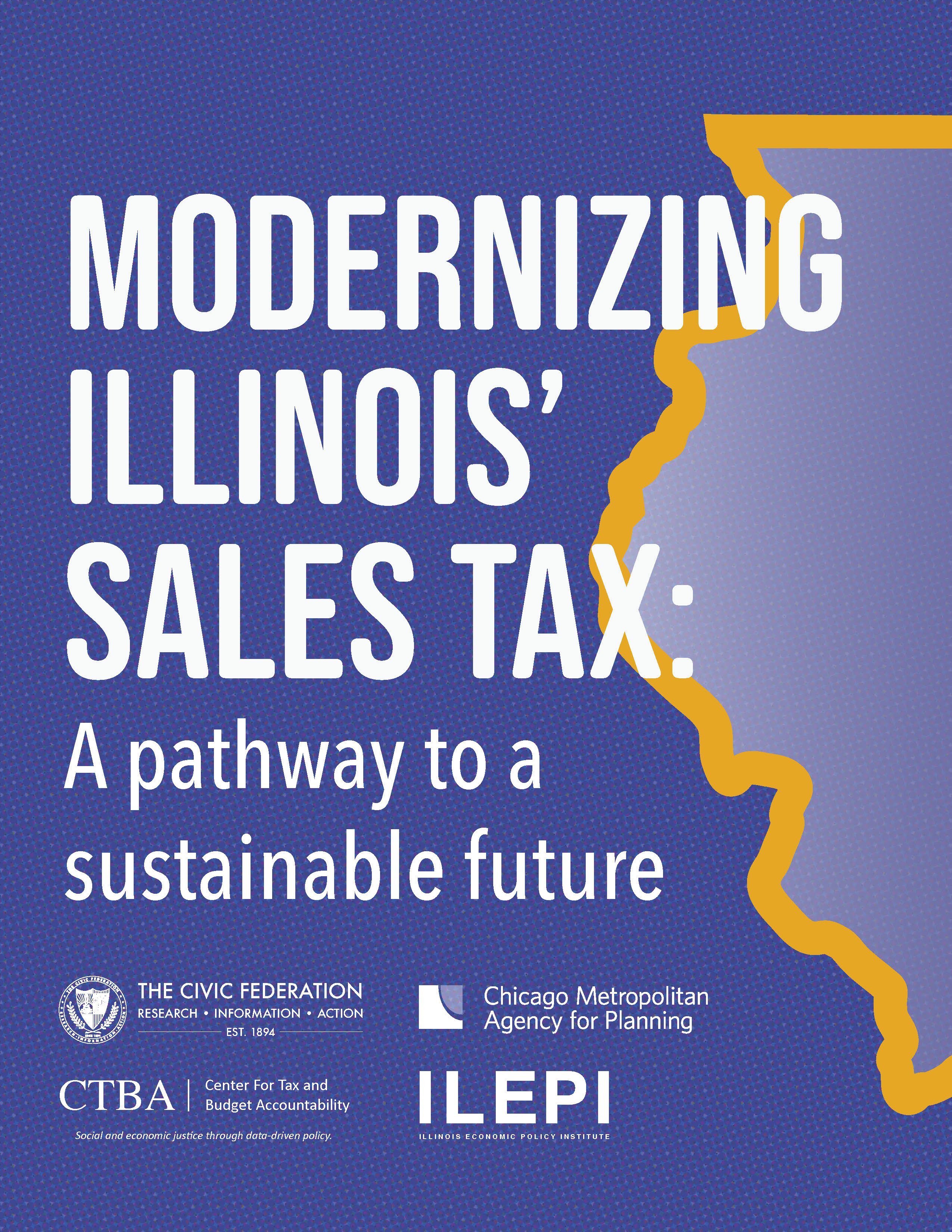March 19, 2025
Click here to read the full report.
Executive Summary
As the State of Illinois’ second largest revenue source, the sales tax is a critical tool that supports government operations and public services throughout the state. First implemented in the 1930s, Illinois’ antiquated sales tax structure still primarily taxes goods rather than services. Due to this narrow tax base — which does not reflect the modern, service-oriented economy — the sales tax is falling short. Illinois needs a more strategic and sustainable fiscal structure that delivers consistent and reliable revenue growth, efficient spending, and economic competitiveness.
The time has come to fundamentally modernize the sales tax in Illinois to better reflect a 21st century economy. Applying the sales tax to consumer services would help secure Illinois’ financial future and its ability to meet residents’ needs by supporting critical public services, reducing tax inequities, and enhancing fiscal stability.
The Time Has Come to Act
As a policy matter, a half-century of tax base erosion means the state’s sales tax does not adequately capture current consumer spending activities. This results in disproportionately lower per-capita sales tax collections in Illinois compared to other states, despite a comparatively high composite sales tax rate.1 The state’s outdated approach also unintentionally and unfairly gives preferential tax treatment to service-producing businesses and high-income consumers over retailers and low- and moderate-income households who spend most on goods.
As a practical matter, slow revenue growth means Illinois’ fiscal condition and its ability to invest in critical public services will be constrained for years to come. Despite recent progress that puts Illinois in a better position to respond to uncertain and ever-changing macroeconomic conditions, the funding needs facing the state are substantial. While it is important to practice strong financial stewardship to constrain cost growth over time — as noted in Governor Pritzker’s State of the State and Budget for fiscal year 2026 — bold and targeted actions will be required to avoid drastic cuts to public transportation in northeastern Illinois, as well as to meet the state’s obligations across a variety of other important expenditures like pensions and education. The sales tax is a critical source of funding for each of these public investments, but annual inflation-adjusted state sales tax revenues have consistently remained flat, growing only 11 percent between 1990 and 2023 (for a compound annual growth rate of 0.3 percent).
Modernizing the sales tax is essential for the State of Illinois to improve the soundness of its tax system, to achieve long-term fiscal stability, and to meet future economic challenges. As part of a path to sustainable revenue growth, Illinois should expand its sales tax beyond goods to include more consumer services. The benefits of such a policy change would include a more diversified, equitable, and sustainable tax structure that allows the state and local governments to consistently and effectively invest in programs and services.
Key Findings
- Illinois' sales tax structure is outdated and misaligned with economic activity.
- A sales tax on services would be less regressive than the current structure.
- A sales tax on services would produce additional revenue to fund critical services.
Key Implementation Considerations
This report lays out the policy considerations for expanding the sales tax base to include consumer services and introduces key principles for implementation. As Illinois considers and designs a sales tax on services, there are several principles that should be incorporated as part of an implementation plan:
- A service tax should be imposed on a broad set of consumer services to comply with the Illinois Constitution’s uniformity clause, which requires that taxes be consistently applied, with reasonable exemptions.
- Any economically efficient plan to tax consumer services should include two important exemptions to support the state’s households and businesses:
- Essential services like housing, healthcare, and childcare that are generally not classified as volitional consumption should be excluded from any tax on consumer services.
- Services purchased by businesses as an input into products later offered for sale should also be excluded.
- To address existing taxes on services, the General Assembly should work with local governments to transition their existing service taxes (such as Chicago’s tax on streaming services) and avoid double-taxation by multiple units of government.
- As part of an expansion of the sales tax base, taxing jurisdictions should consider potential adjustments to their current rates, with the goal of maximizing revenue while decreasing overall tax burden on consumers.
- Careful consideration must be given to the appropriate use of new incremental revenue.
- To support successful modernization of the sales tax, the State should create an independent advisory panel to work alongside state agencies to provide professional guidance and ongoing evaluation of tax performance, and, as needed, suggest adjustments over time.
Click here to read the full report.

